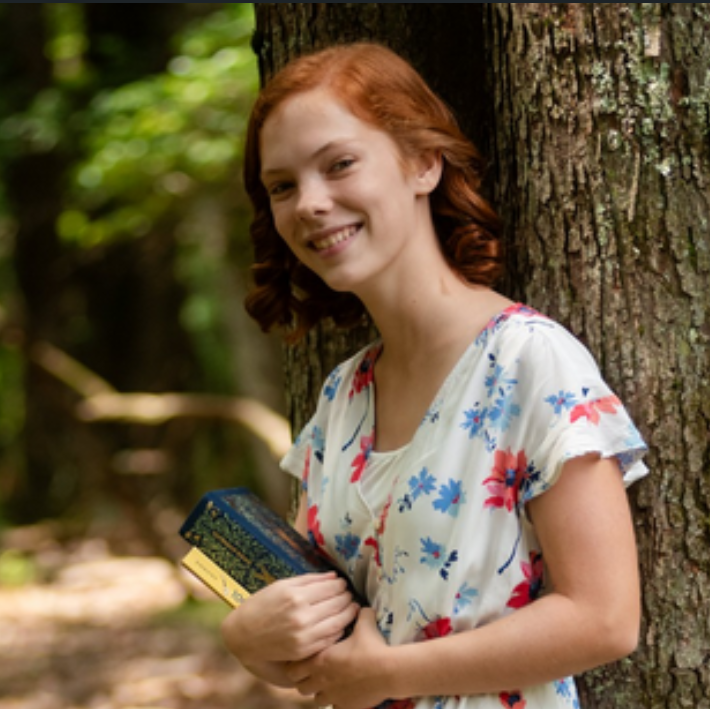I think we can all acknowledge that no story is perfect. Even the very best fiction has some element that could be stronger, or at the very least a criticism that we can understand, even if we don’t agree with it.
As writers, our own work is no different. No matter how many books on writing we read, how many videos on storytelling we watch, or how many how-to’s we find on writing blogs, there will always be flaws in our stories.
But the truth is, I don’t think that’s necessarily a bad thing. I think there’s a strength hiding in our stories’ weaknesses that can be overlooked or eliminated altogether when we try to perfect absolutely every aspect of our work.
So this week, we’re exploring how to find the hidden strength in our stories’ flaws through the contemporary fantasy movie IF.
IF
Bea is a twelve-year-old girl who lost her mother to cancer and has been forced to grow up too quickly as a result. Although she has fond memories of her childhood — telling her parents stories, drawing them pictures, and sharing the adventures she had with her imaginary friends — she’s grown past it and is determined to embody the kind of stability that she struggles to find anywhere else. At the opening of the movie, her father’s in the hospital for heart surgery, and the two of them have moved back to New York City, where she used to spend summers with her grandmother, so that her father can get the best possible care. But under her typical cool and collected demeanor, Bea is terrified that she’ll lose him as well. He can sense her worry, and tries to cheer her up with jokes and pranks. He asks her to draw him a picture, or tell him the sort of stories she used to before her mom died. Over and over, she patiently reminds him that she is too old for things like that.
Or so she thought.
Everything changes when she reunites with her old friend Cal, who still lives in the same apartment as her grandmother. He reintroduces her to the secret society of imaginary creatures she thought she’d forgotten, formed for imaginary friends who have been forgotten by the children who originally created them and are looking for real children to be friends with again. Since she and Cal are still the only people who can see them, they’re also the only ones who are able to help them find homes. At first Bea is exasperated that the imaginary friends — or “IF”s — are coming back into her life, especially at such a stressful time. She insists that she’s grown past IFs and doesn’t have time to find new homes for those that have been forgotten by the children that originally created them.
But the enchanting nature of the world of the IFs keeps drawing her back. Eventually, she decides to join them, realizing that she’s not only helping the creatures, but also the people around her who are hurting and could use an extra friend. They travel all over New York, connecting with children across the city as they try to match them with an imaginary friend that no one else can see. Some of their missions are successful, while some of them aren’t. For most of the movie, Bea is wrapped up in rediscovering her childhood through the imaginary people she’s tried to convince herself aren’t real.
And then there is a complication with her father’s surgery.
Just like that, she drops everything to rush to the hospital, where her father is hardly breathing, alone in the hospital room. Bea, afraid she’s watching her father die just like her mother and with no idea what to say, finally tells him a story.
It’s different from the kind of stories she used to tell when she was younger, because it’s her way of being honest with her father for the first time since her mother died. Bea tells him she is scared, and she’s just a kid, and that no matter how hard she tries to grow up, she loves that he’s always been there to help her remember what it is to be a kid. No matter how much she pushes him away, he brings the things she thought she’d grown out of, the things she’d convinced herself she didn’t need. And that’s why she needs him. She can’t lose him, because he’s all she has left.
And then he wakes up.
Know Your Strengths
IF is a beautifully written, touching story about treasuring the imagination and wonder of childhood while growing up. Despite the colorful animation, young protagonist, and silly moments, it packs an emotional punch that reaches all ages and is impossible to forget. Its greatest strengths were displayed most fully in the moments between Bea and her father and scenes in which she recalled life before her mother’s passing. Although the IFs themselves were important, at its heart this was a movie about fathers and daughters and about growing up without letting go of the power of imagination. It was powerful enough that it didn’t need some of the other elements that many writers consider essential to all stories — such as a plot. The characters and themes were strong enough to carry the viewer all the way through the two-hour runtime without some grand, overarching goal tying it all together or some sort of external conflict. Rather, the tension generated from Bea’s reluctance to reconnect with both her father and her childhood was enough that an external center of conflict wasn’t necessary.
But the writers didn’t see it that way. Somewhere down the line, the decision was made to come up with a plot in an attempt to give more conflict to the imaginary side of things, hoping it would provide a more traditional sense of adventure. This plotline came in the form of Bea’s attempts to find friends for the forgotten IFs, but ultimately it distracted from the real power of the movie.
The point of the story remained ambiguous because the viewer couldn’t tell whether or not the main conflict was about Bea reconnecting with her father or finding homes for forgotten IFs — which, by the way, took up a significant runtime of the movie. The middle of the story felt unfocused, bouncing between two different conflicts, plotlines, and ultimately two completely different stories. By the end, it became clear that the movie was fundamentally about the relationship between Bea and her father, who gave her a new appreciation for the childishness that helped her fight the tragedy that has defined so much of her life. The plotline about finding homes for IFs felt like a distraction from what really mattered. Although the IFs had a role in the story, it was ultimately to make Bea appreciate the childhood she’d tried to put behind her so that she could reconnect with her father. What is summarized as the main plotline in so many of the synopses of the movie actually served as a support for another conflict.
Ultimately there wasn’t a good, unifying plot that would both highlight the tension between Bea and her father and give her a singular mission while she was interacting with IFs. But IF was never meant to have a riveting plot when it already mastered so much of what gives a story heart and meaning. The movie didn’t need some overarching mission or grand quest. It was beautiful because of its simplicity.
Not every part of your story is going to be equally strong. Your character work can’t be as strong as your worldbuilding and just as strong as your plot. It is simply impossible. As writers we just can’t do it all, and I don’t think we have to. Just as your protagonist cannot sum up all of human improvement and development with one arc, your novel cannot sum up all of the very best aspects of storytelling in one book. And it’s not supposed to.
Viewers forgive the implausibility of so many of the original Marvel movies because the character work is so complex and well done. Harry Potter fans put up with plot holes and vague character arcs because of the originality and creativity that is found on every page, from the worldbuilding to the plot to the mystery. Readers don’t demand fast pacing from Tolkien because the pages of exposition color a world so rich and unforgettable that it changed the fantasy genre forever.
What gives the powerful parts of certain stories so much weight is that they are clearly the focus and point of the entire book. They are contrasted by the weaker aspects of that same work, which shows just how unique and powerful they are. Your book isn’t supposed to upend the entire fantasy industry with its worldbuilding and have the very best characters and have a plot twist no one saw coming and be praised for a century because of its pacing. But when we identify a story’s strongest points, play to its strengths, and make the most powerful parts of our books the very best they can be, we can give that story a chance to reach its highest potential, even if we have to ignore or outright abandon other flaws in order to get there.
Each element of your work cannot be equally powerful, and that’s not a bad thing.
As writers, it is crucial both that we discover where our story is weak and where it is strong, and that we make those strengths clear to our readers. Don’t emphasize your worldbuilding if it’s vague and unimportant to the story. Don’t sacrifice your storytelling for a faster pace because you’re afraid your book will be too boring. Don’t have a plot at all if it’s weak and there are so many other parts of the story that you want to explore.
Your book isn’t meant to be everything, so don’t force it to be. Ask yourself what sets it apart from all the other books on the shelf, and emphasize that. Forget a plot, stakes, character, or humor if you have to. Remember what makes your book story powerful, and then go write the version of that story where it’s the very best it can be.



Let us know in the comments:
What are the strengths of your current WIP? What stories have you read or watched that had very clear strengths, and what were their weaknesses?


Hi! My name is Mara, and I’m a Christian artist, violinist, and blogger. I remember the day that I decided that I would learn something new about what makes a good story from every book I picked up — whether it was good, bad, or a mixture of both. I use this blog as a way of sharing some of the tips and tricks I’ve learned, and highlight which books, cartoons, and movies have taught me the most about writing an awesome story.


That just… cleared up the entire movie.
This is something I feel like I struggle with. My stories don’t have dynamic plots, and it’s hard to remember that it’s okay to have loose plots. In fact, it’s often more realistic. (probably the only realistic part of my stories, tbh)
I’ve seen the movie twice, and I felt that the “sidestory” with her dad was pulling away from the plot. But explained like this, it makes more sense that her and her dad were supposed to be the main focus, but got… lost. It really is a shame.
(Also, ummmm… you kinda dropped a huge spoiler….. just so you know)
I’m glad this article helped! I wanted it to be an encouragement for writers struggling with an element that maybe wasn’t meant to be in their story to begin with.